June 2, 2021
The Basque Museum and Cultural Center was established in 1985 and is the first U.S. museum dedicated to preserving the Basque legacy. Basque is a region about the size of Maryland in the western Pyrenes between Spain and France.
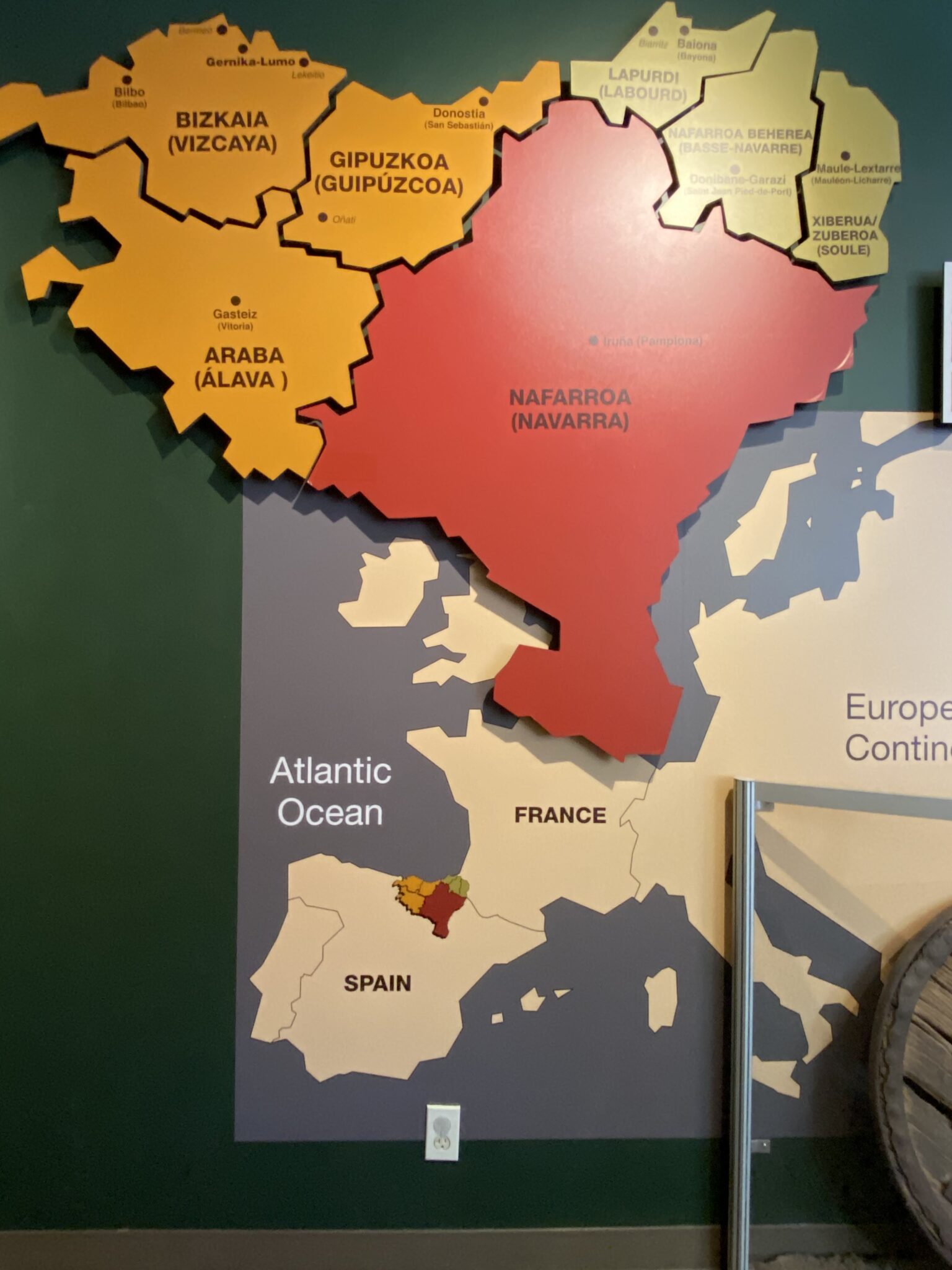
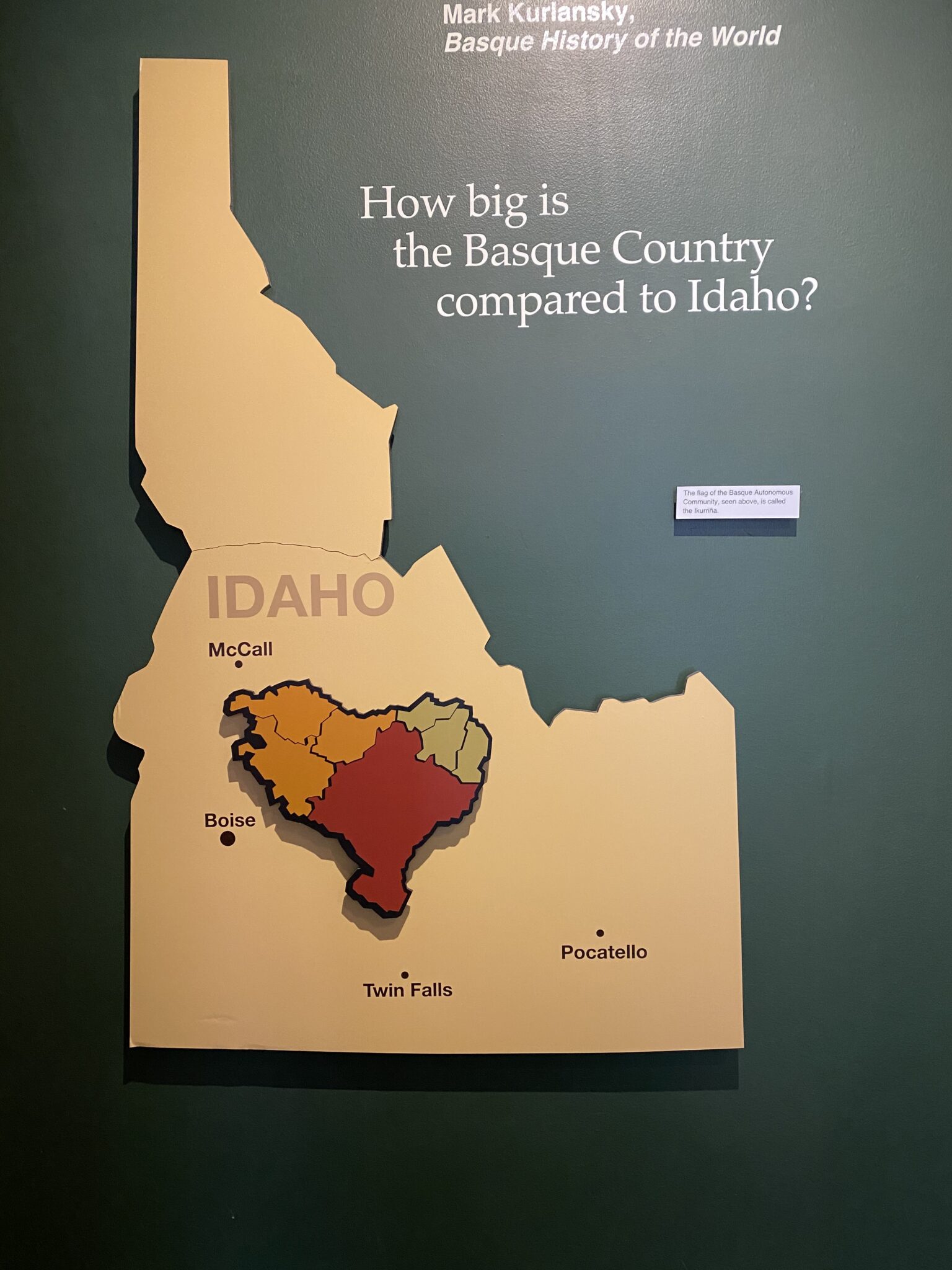
The Basque language, Euskara, is unrelated to other existing languages and is thought to have developed before the arrival of Indo-European languages in the area.
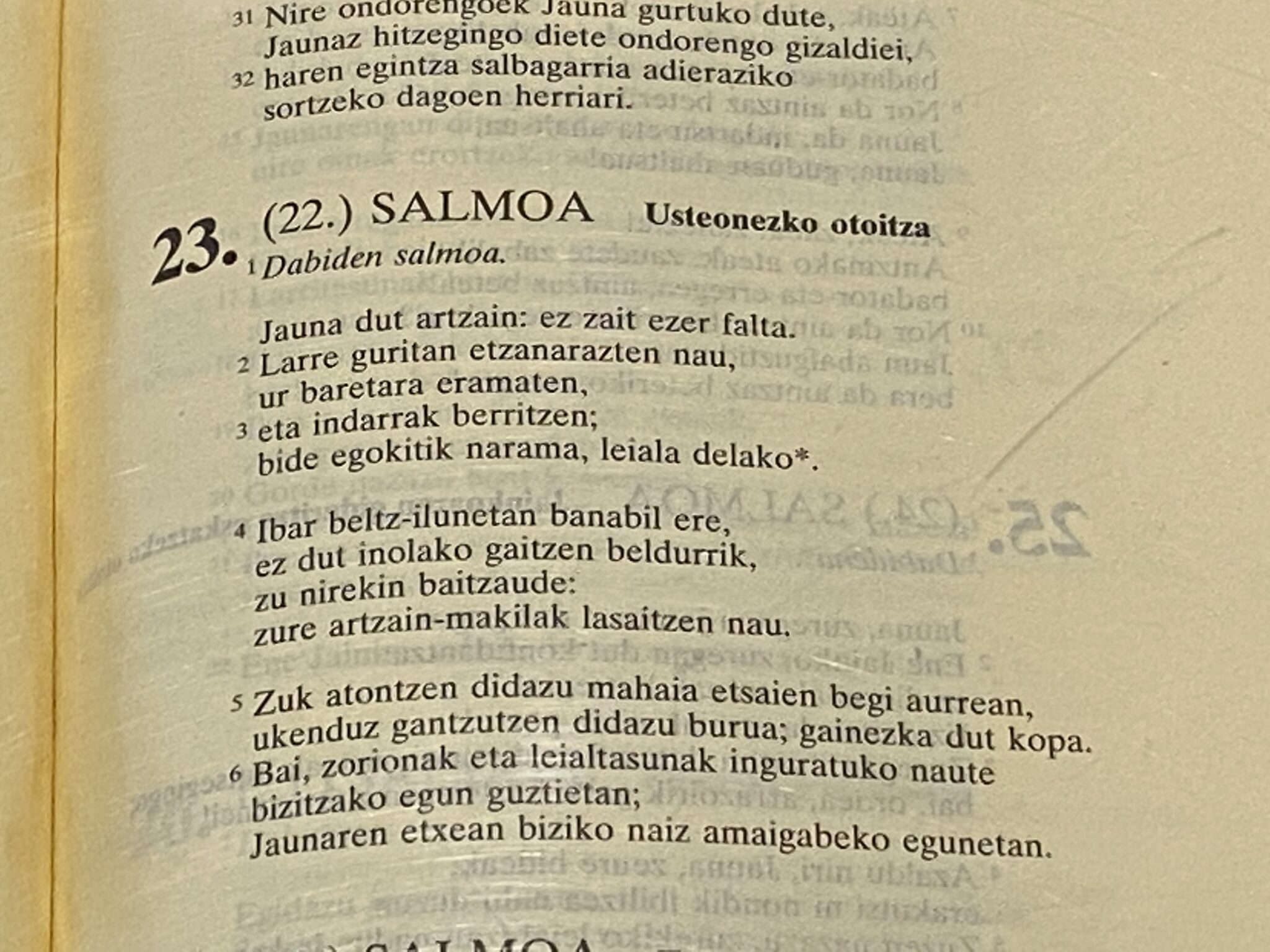
Basques in History
Basque whalers probably explored the Americas before Columbus. Juan Bautista de Anza, an explorer of Basque descent, is known as the founding father of Spanish California, and his son created the first land route from Mexico to the San Francisco Bay area. Of 17 missions in Baja California, seven were founded by Basques. Between 1787 and 1791 Anastasio Echeverría inventoried flora and fauna of New Spain. Almost 400 native plant species are named for him including the plant genus Echeveria.
Basques in the United States
Many Basques immigrated to the United States beginning about 1900 and settled in Idaho, California and Nevada. They often became sheepherders because no experience was required and the job did not require that they speak English. When Dave was about 7, he and his father were hunting in Wyoming and visited with a Basque sheepherder there. They shared the sheepherder’s lunch in his wagon which Dave confirms was just like the wagon on exhibit at the museum.
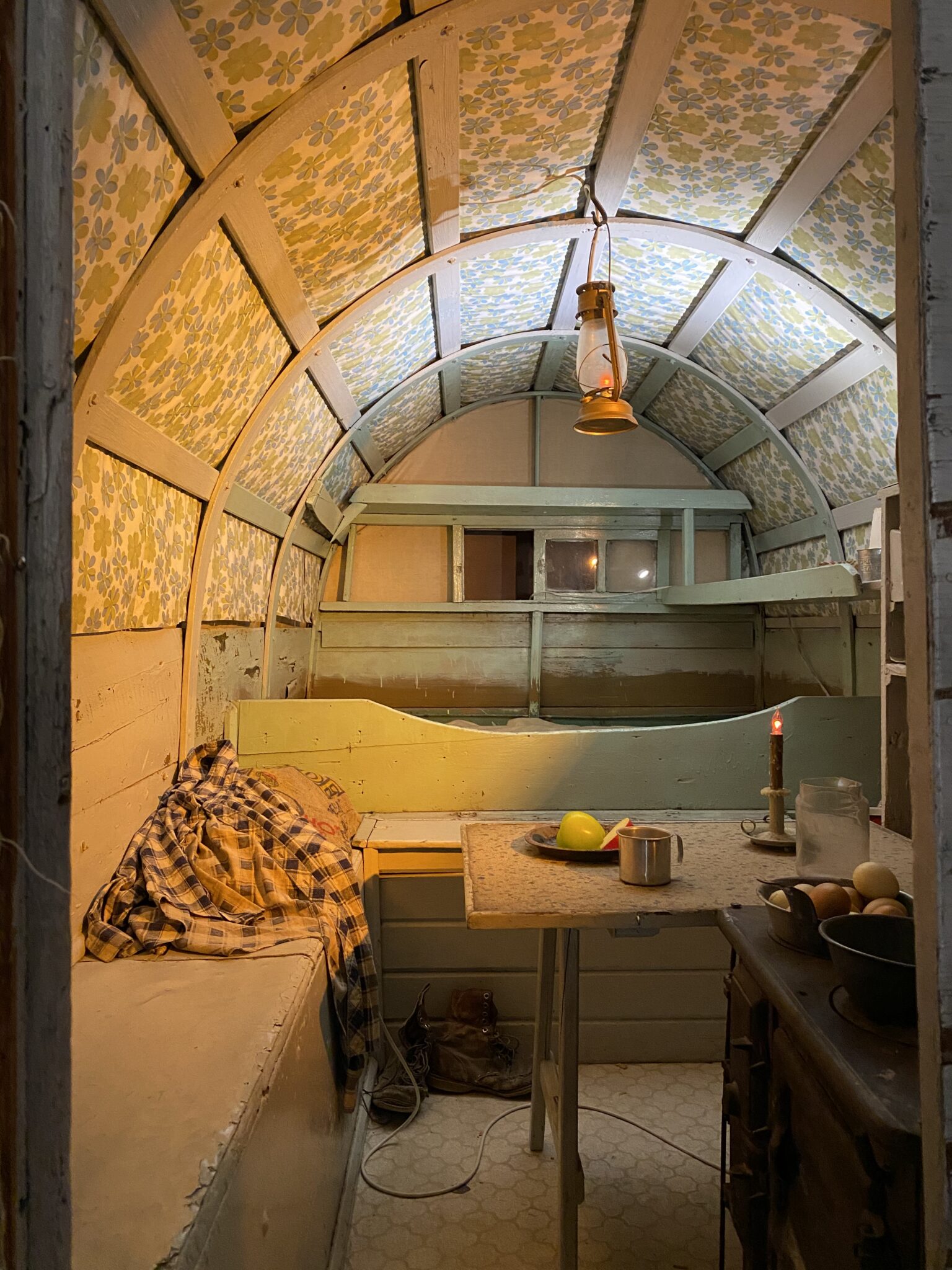
Many fewer Basque women than men immigrated during this time. When they did they often became cooks or house cleaners or ran boarding houses.
The 2000 census enumerated 57,800 people of Basque descent in the U.S. 16,000 of them were in Boise.
Special Exhibit
The museum featured an exhibit of photographs by Jesús de Echebarria, an amateur photographer who documented Basque life in Bilbao, Spain in the early 20th century. He used a stereoscopic technique that simulated a three-dimensional effect. Two lenses were set apart about the distance separating human eyes. Each eye sees one of the images and the brain generates a single image of the two. For the exhibit, the two images are produced in cyan and red, then colored glasses are used to ensure each eye sees only one color. The technique was very effective and the images appeared authentic and life-like.
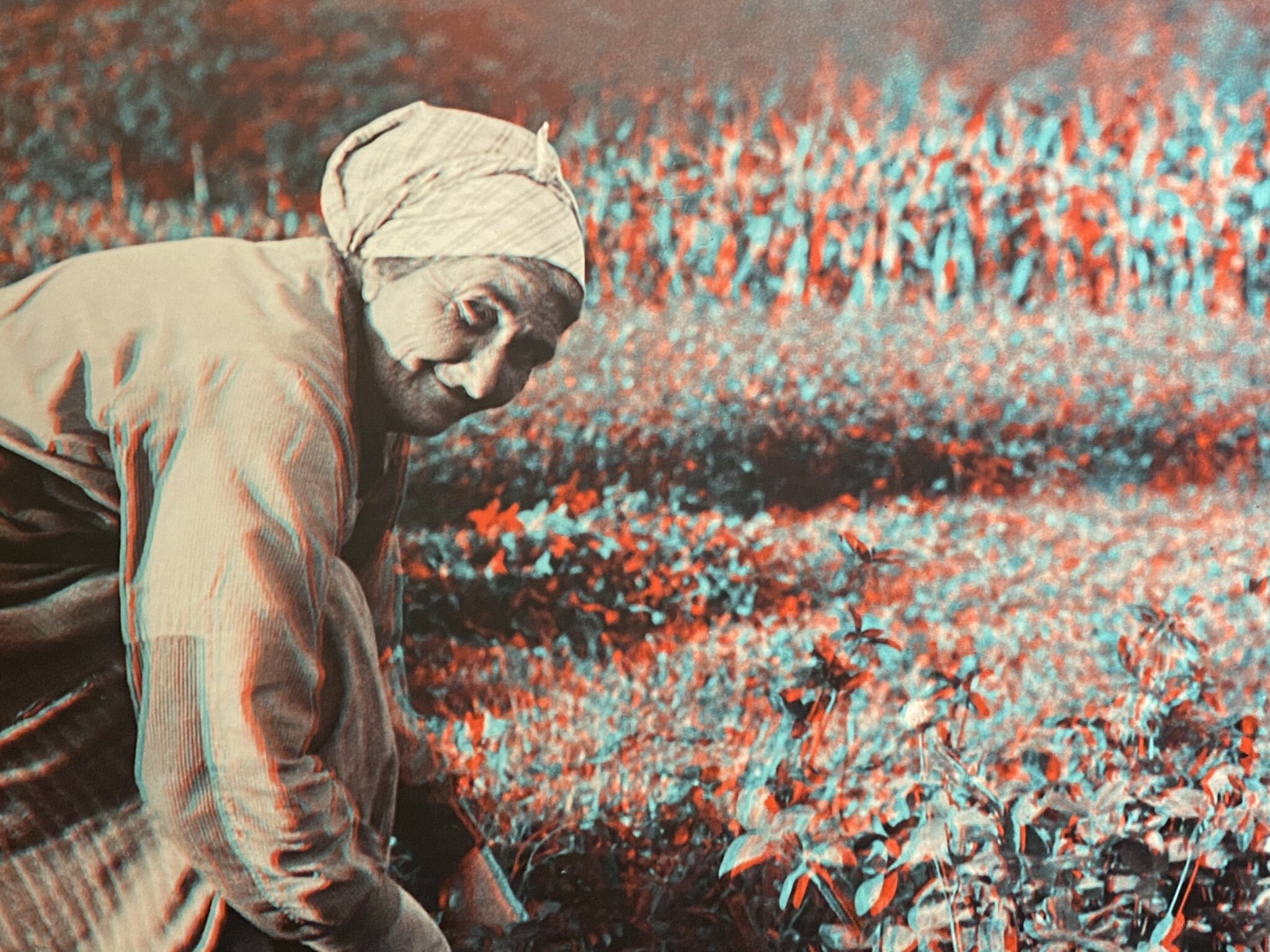
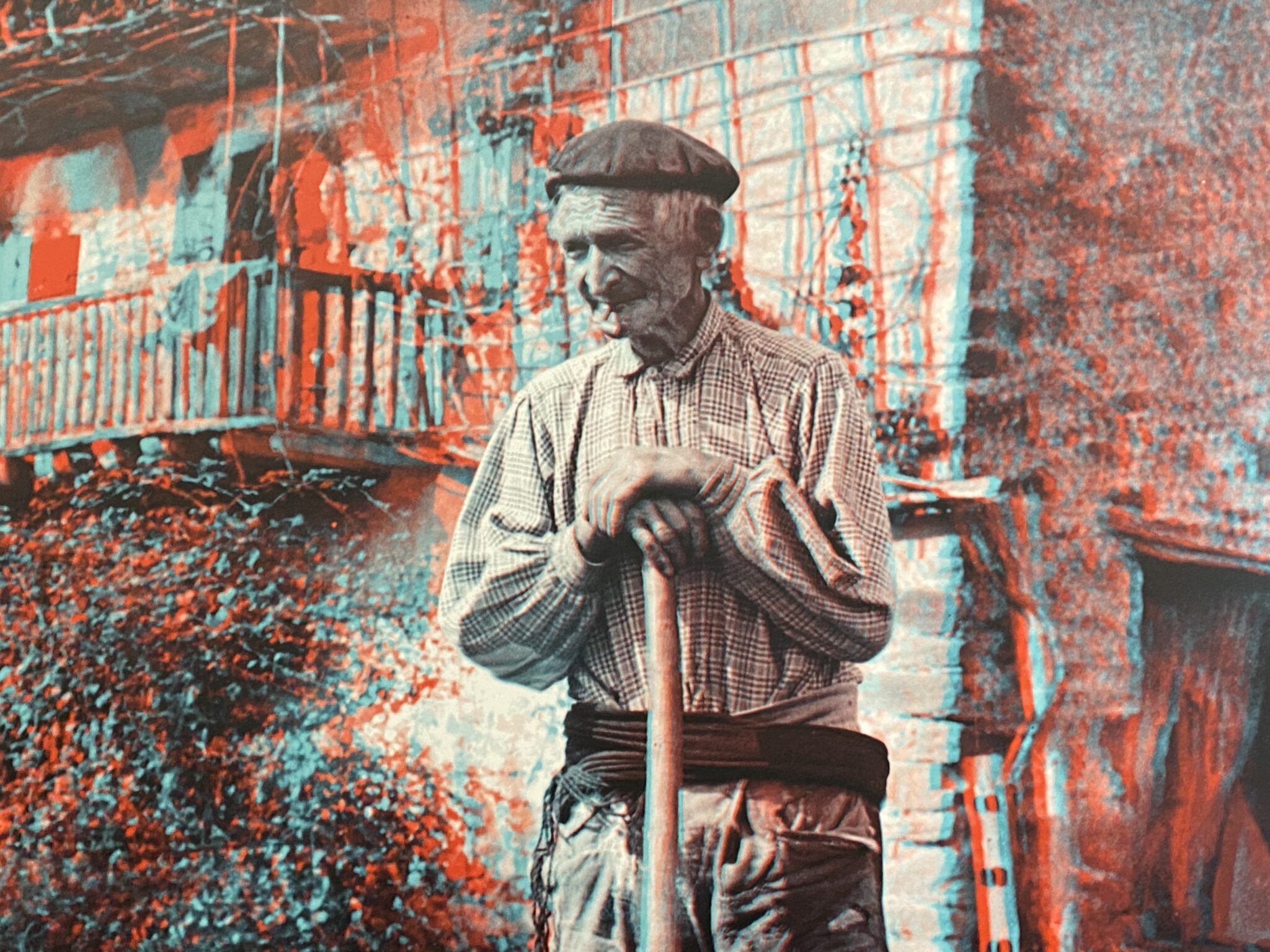
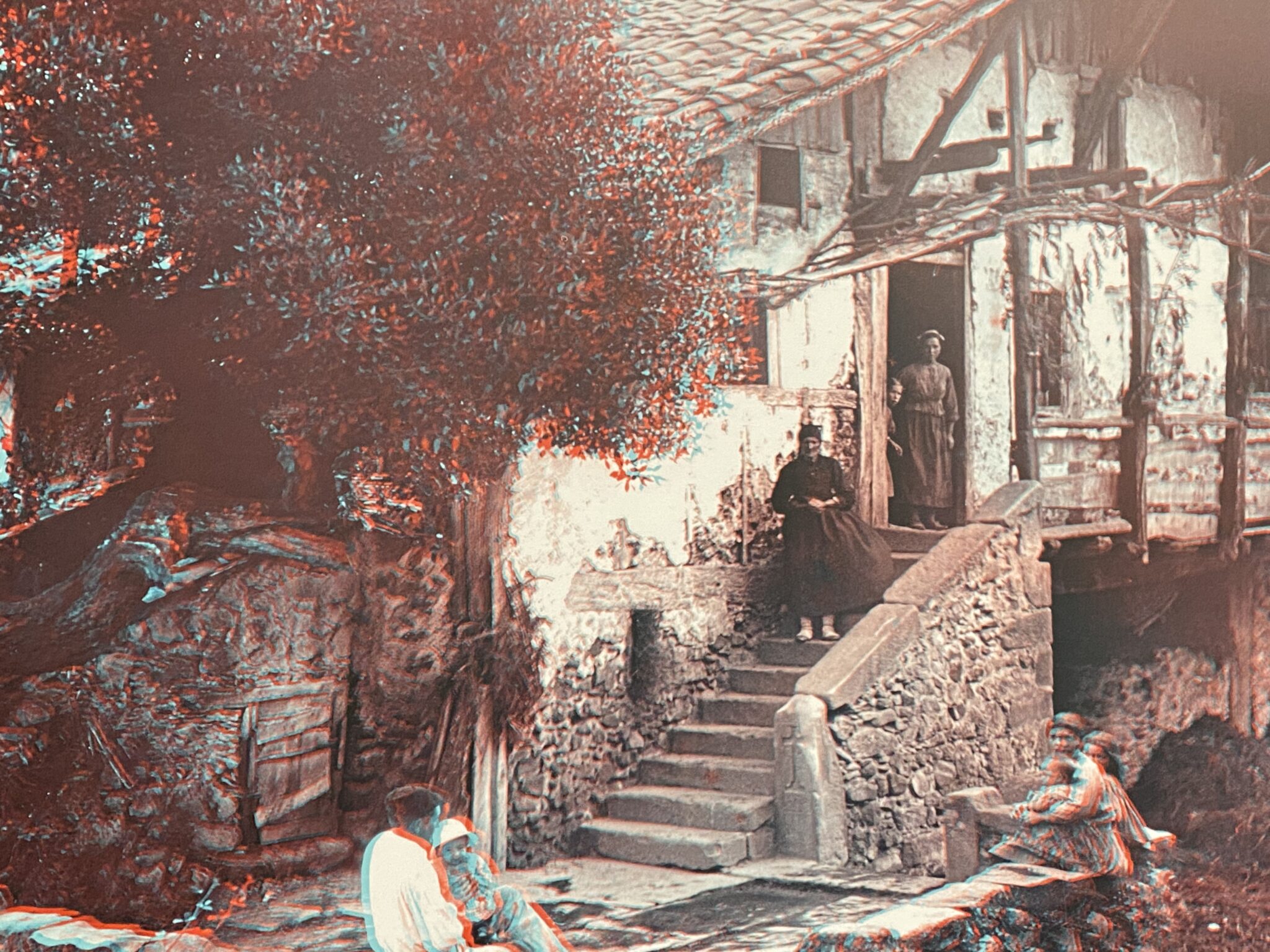
Cyrus Jacobs/Uberuaga House
Boise’s oldest surviving brick building is adjacent to the Museum. It was built in 1864 for Cyrus and Mary Ellen Jacobs. Cyrus made his living selling supplies to newcomers after the discovery of gold in the area.
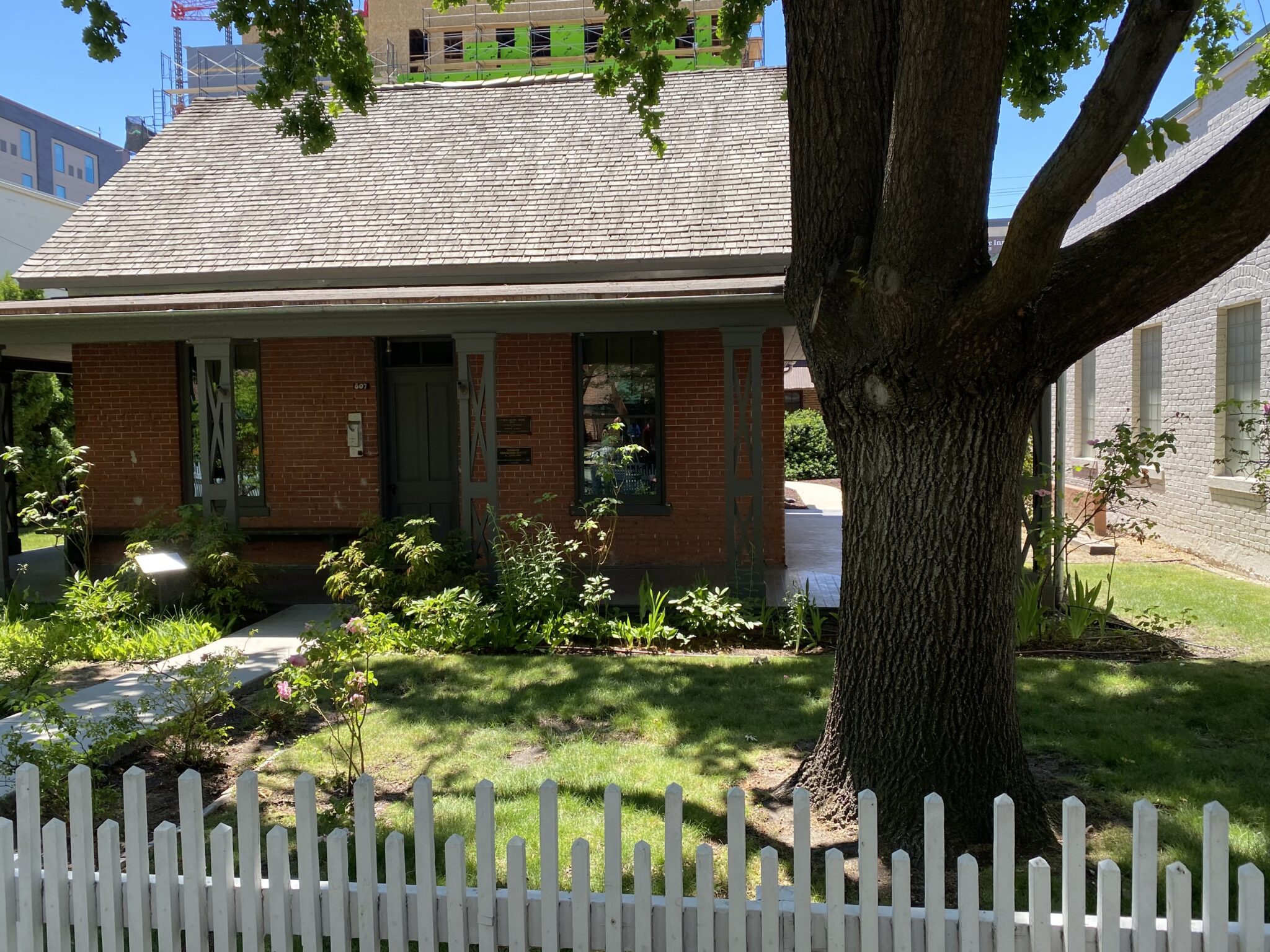
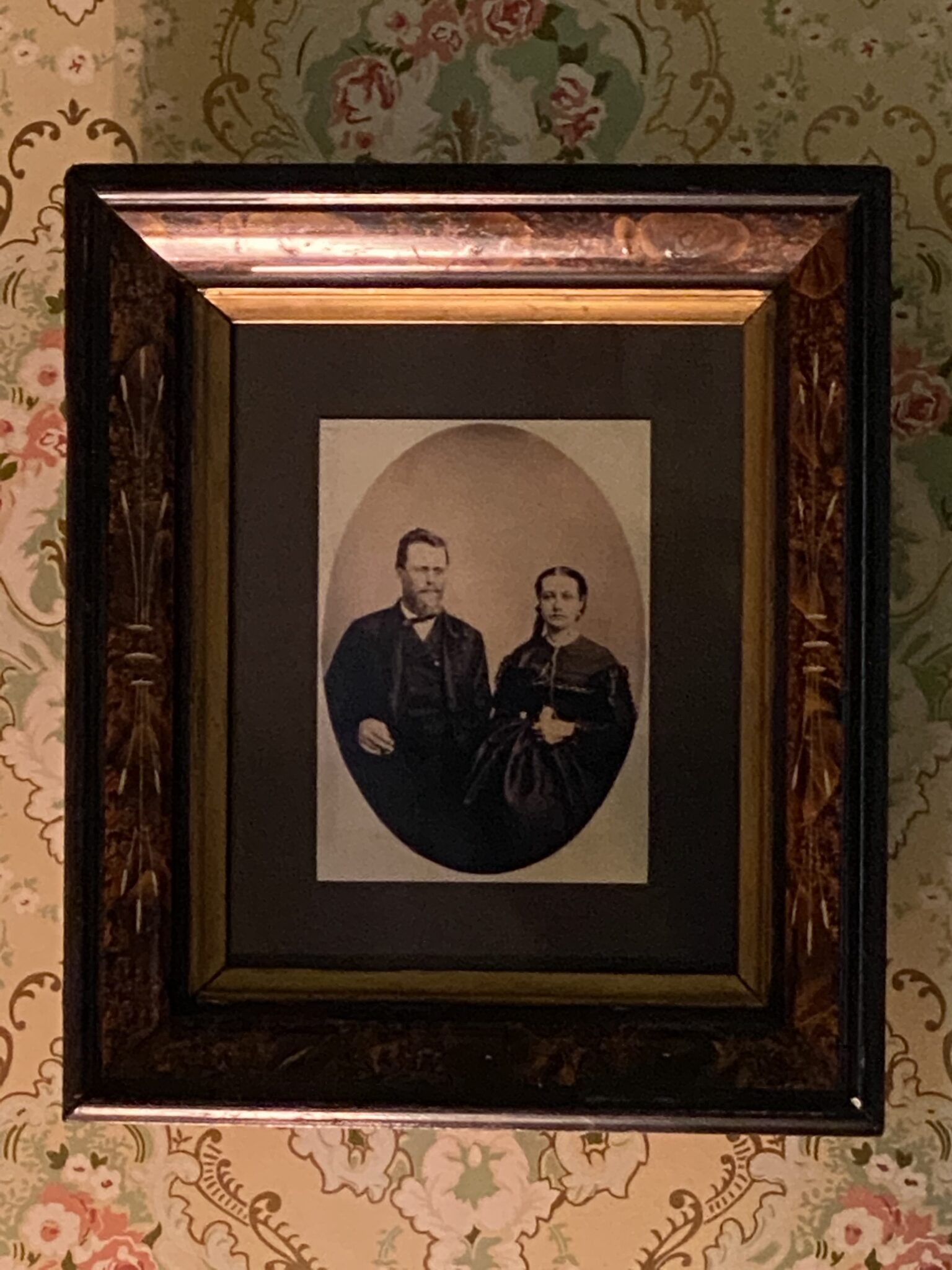
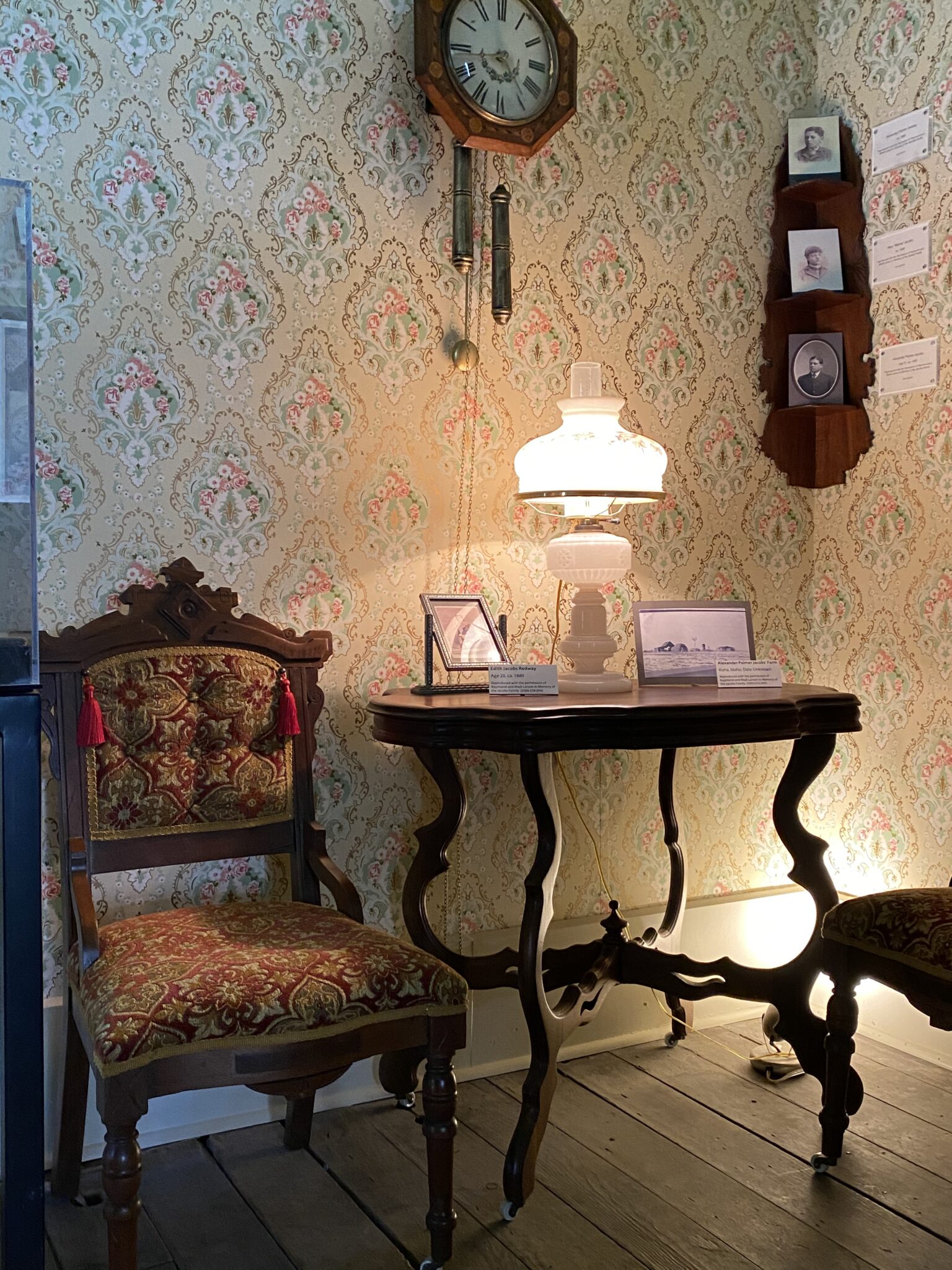
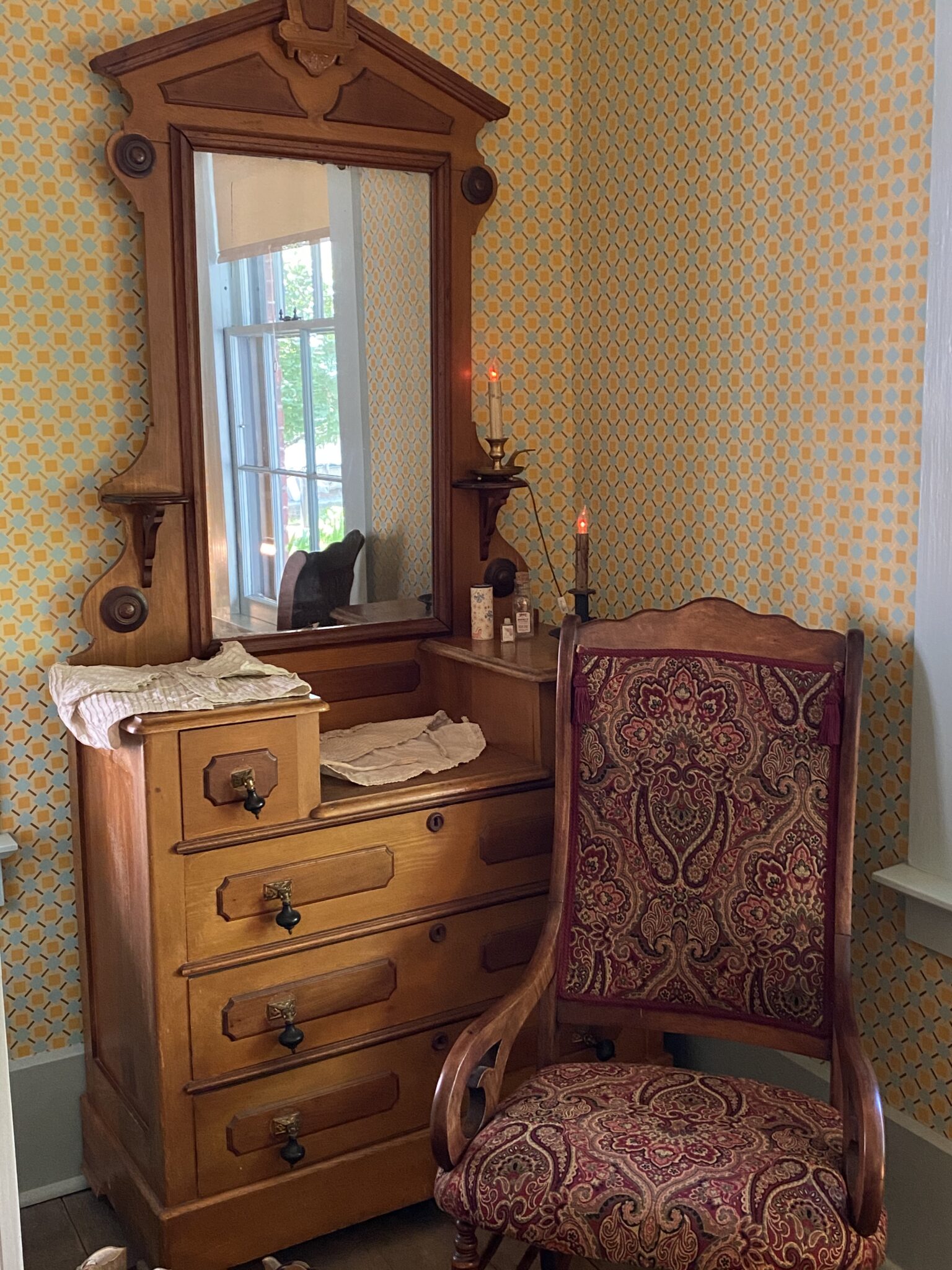
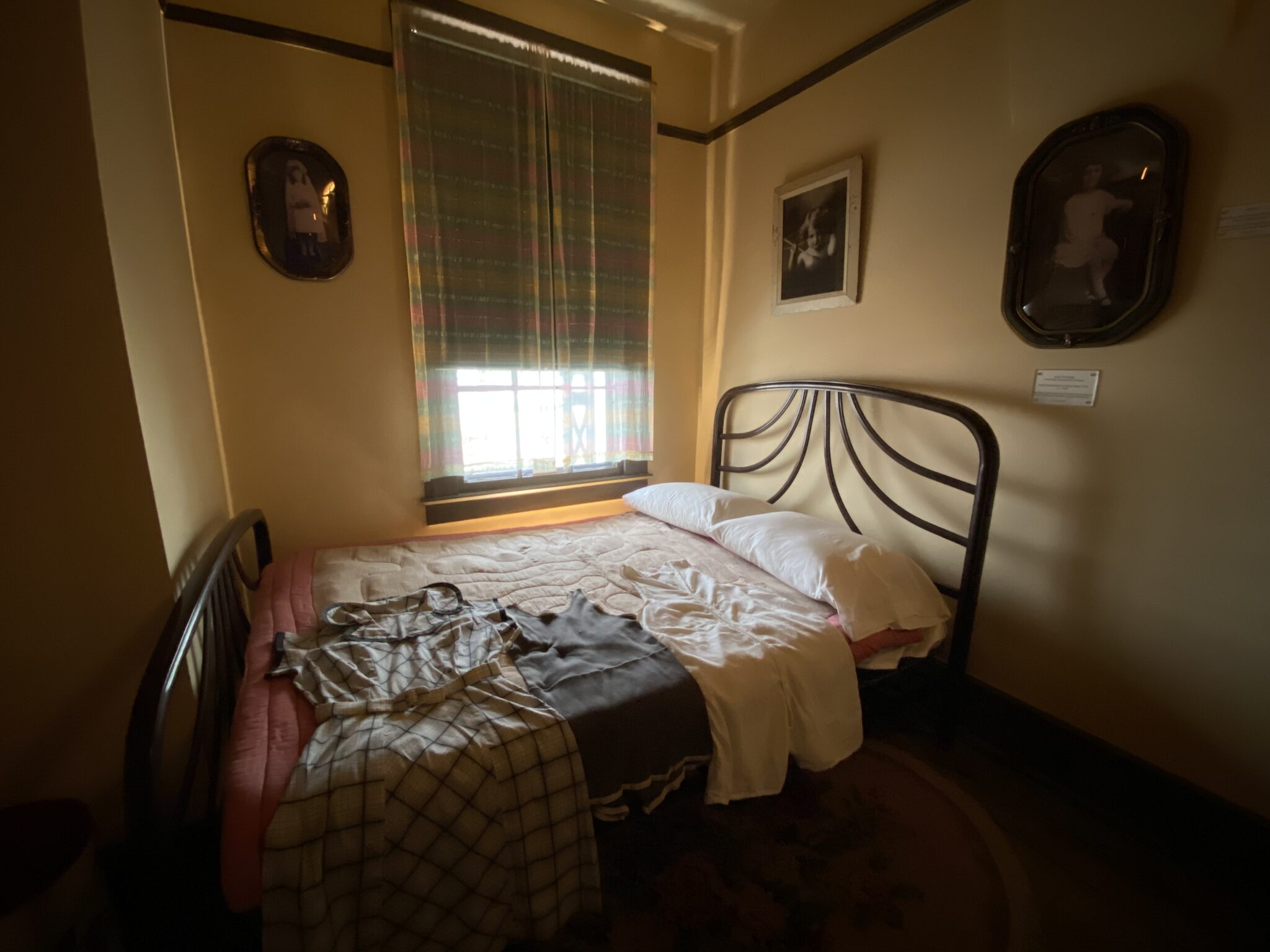
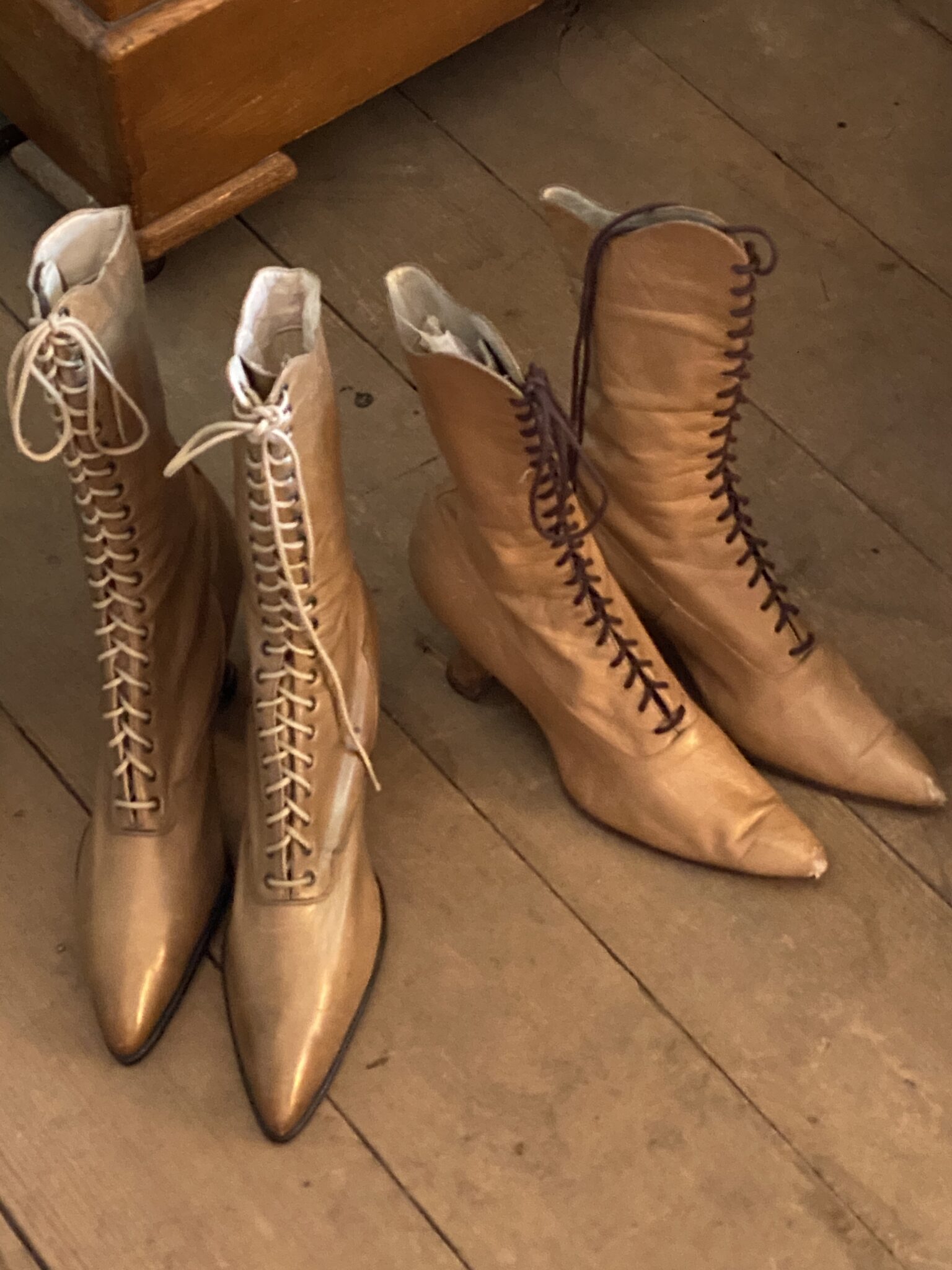
The building became a boarding house in 1910. Joe and Hermengilda Uberugua ran it for over 50 years. The boarding house would be fully occupied during winters when sheepherders had brought their flocks to lower elevations. Up to 15 boarders lived here with five family members. Rent was $25 to $50 per month.
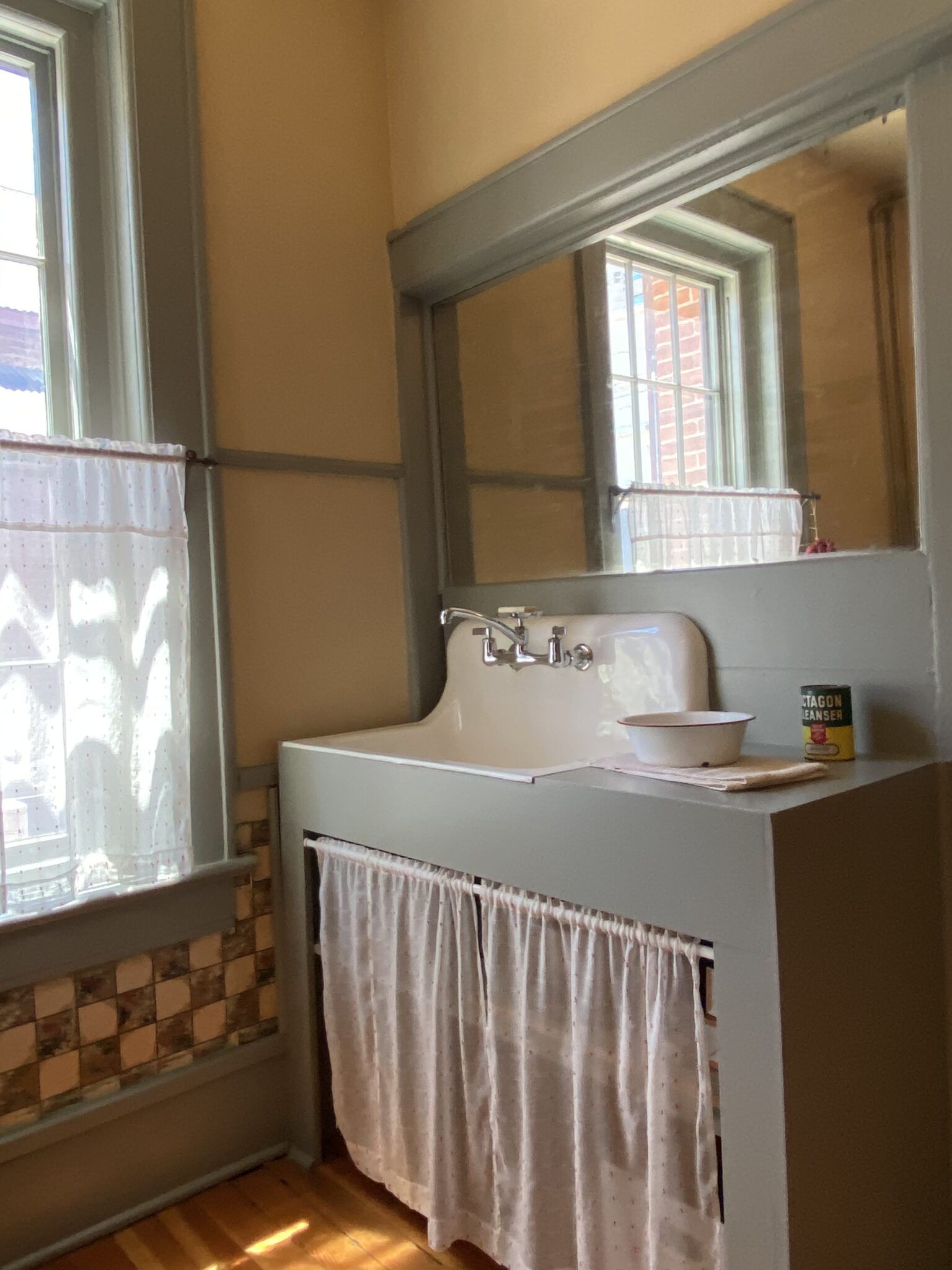
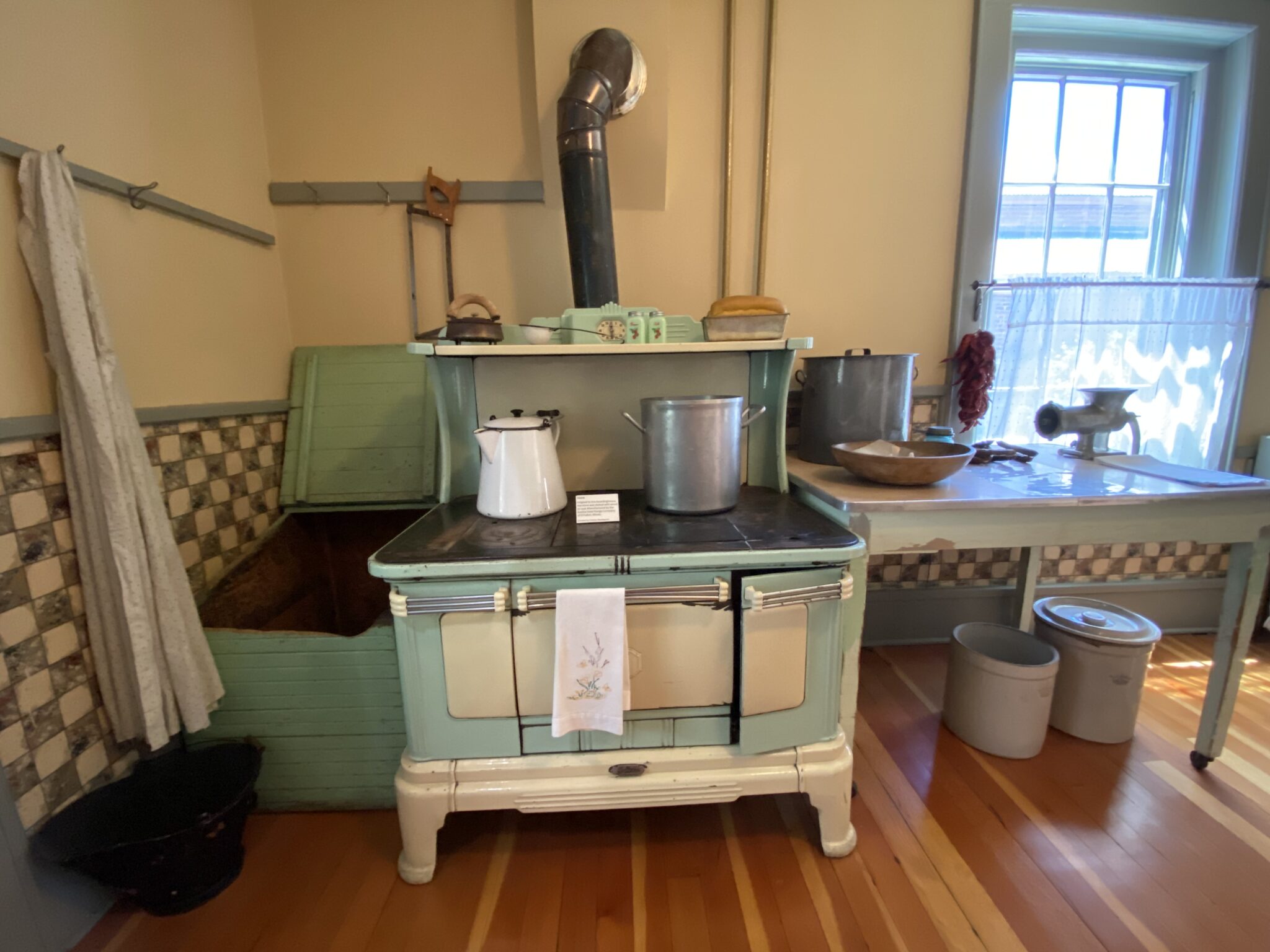
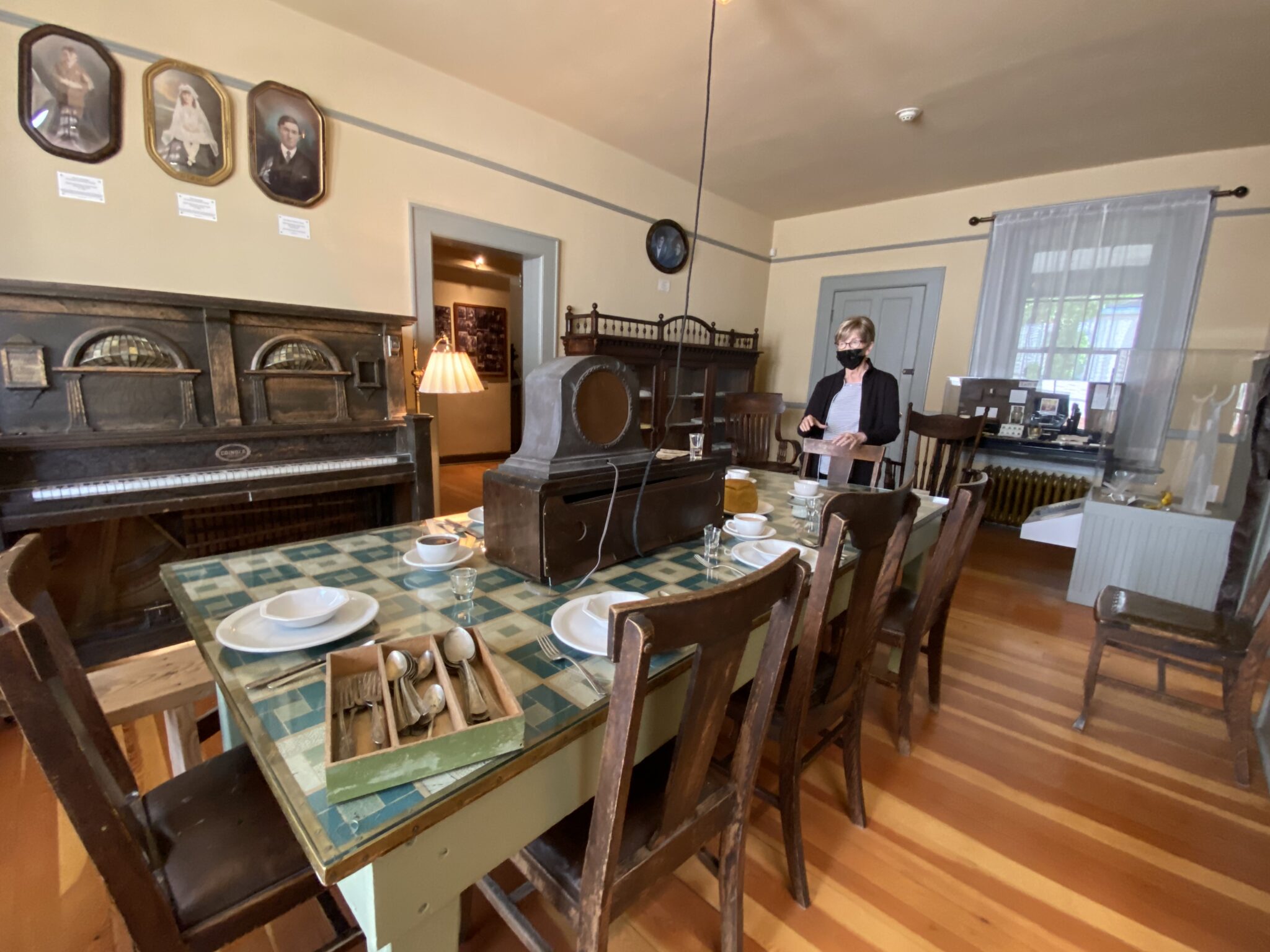
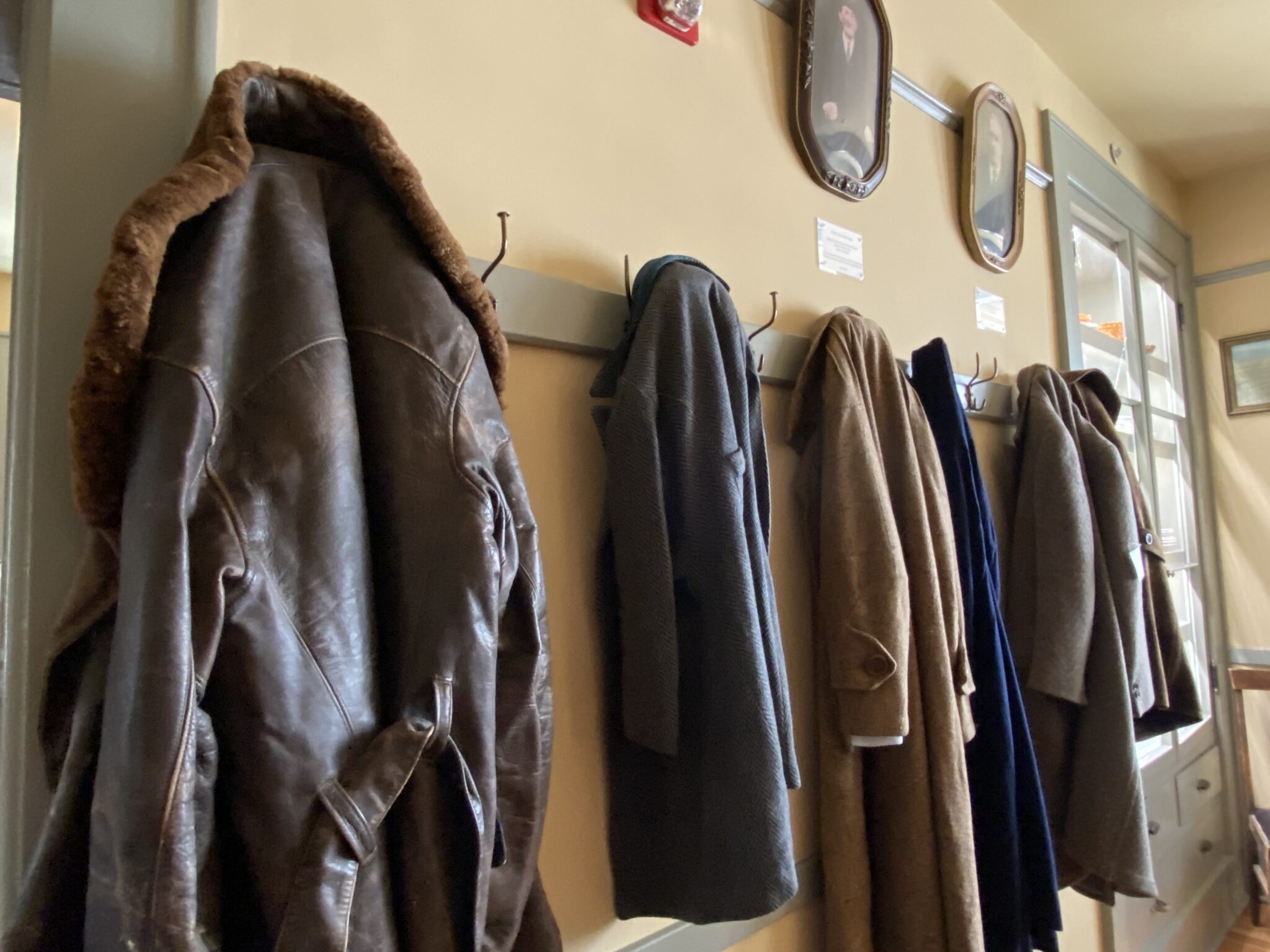
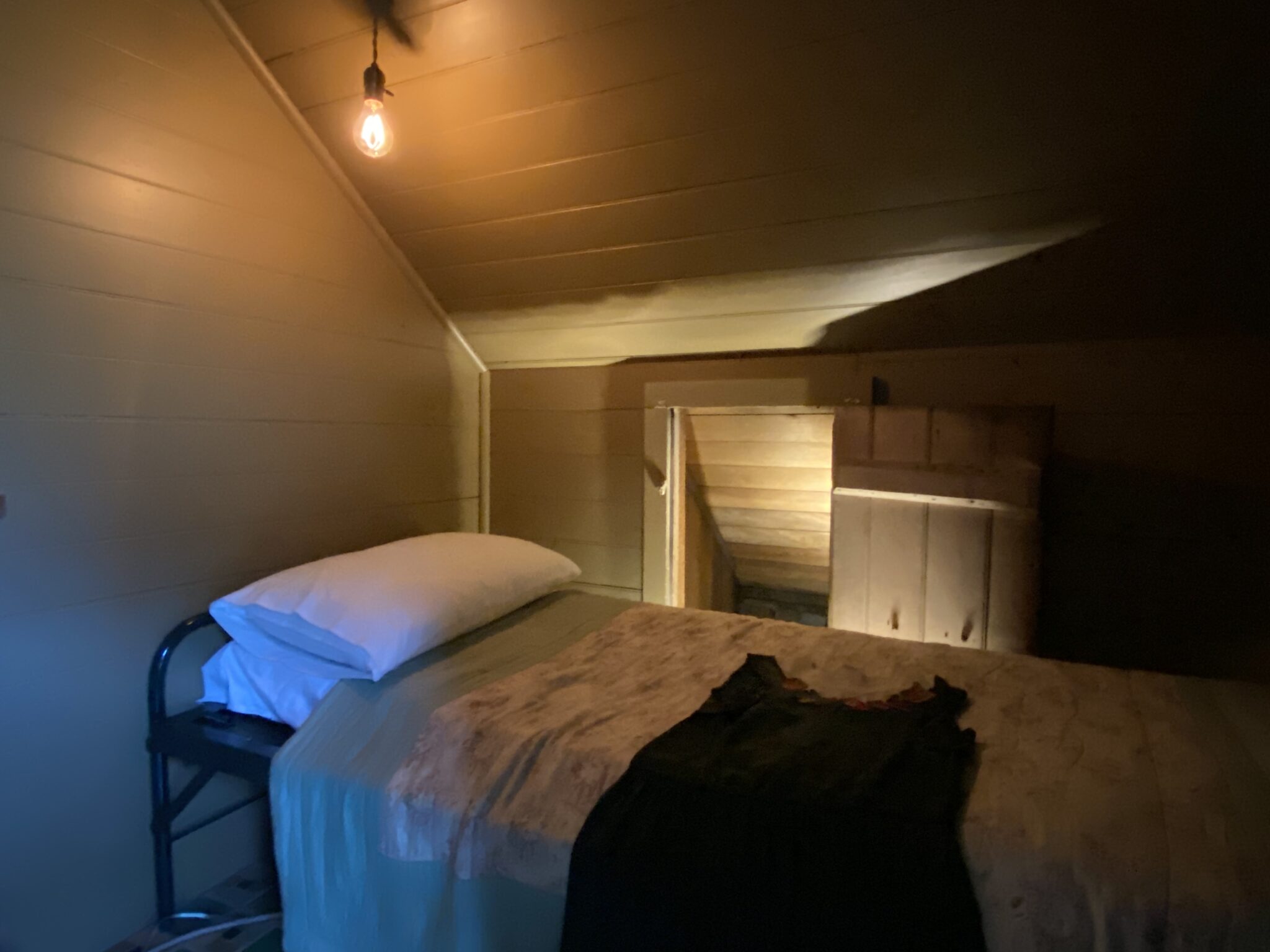
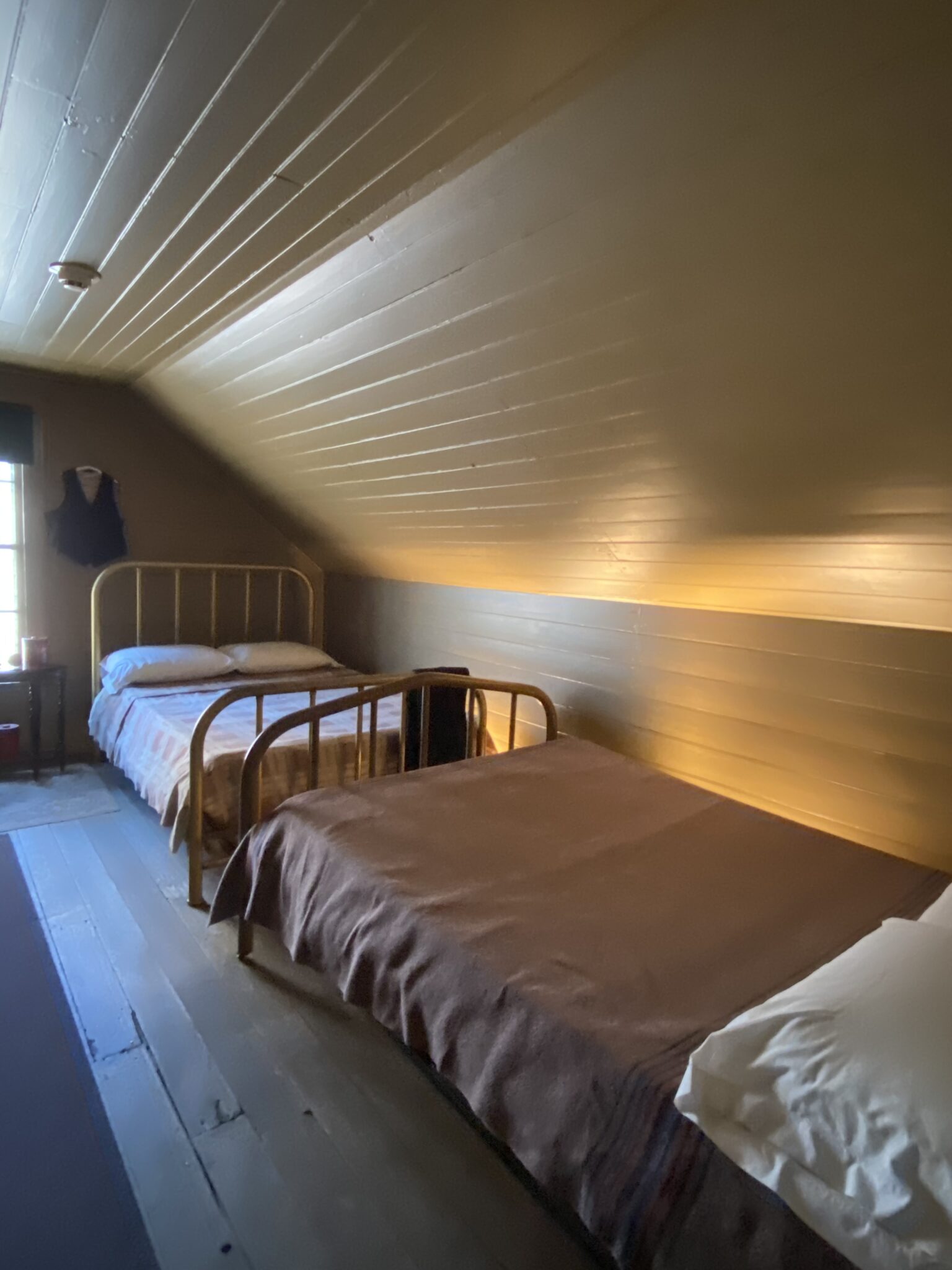
Joe Uberugua was arrested during Prohibition. 104 quarts of whiskey were found hidden in the house. Uberugua served two months in jail and paid a $250 fine.
In the Neighborhood
The Basque Center was built in 1949 to serve as a gathering place for social and cultural events.
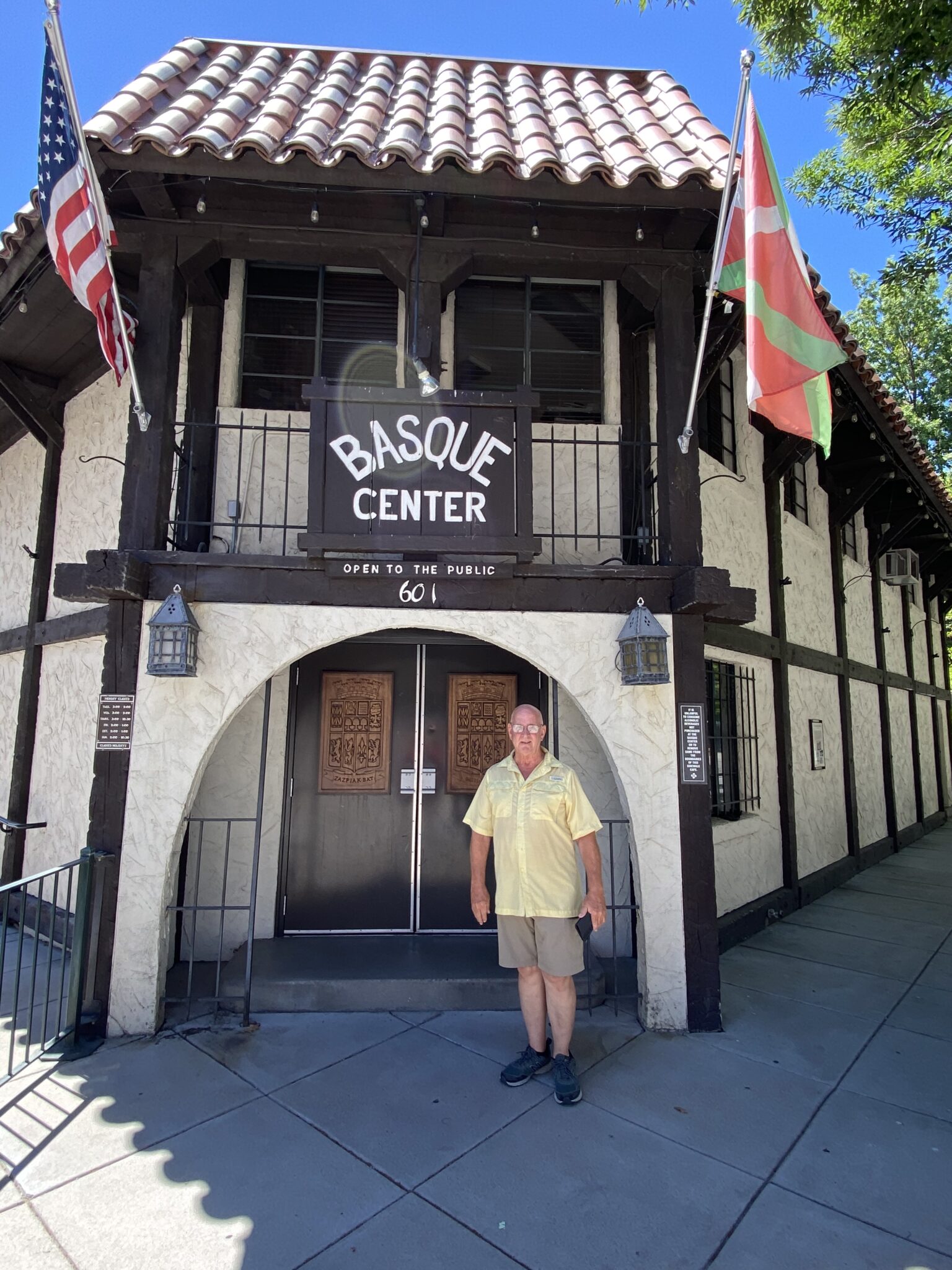
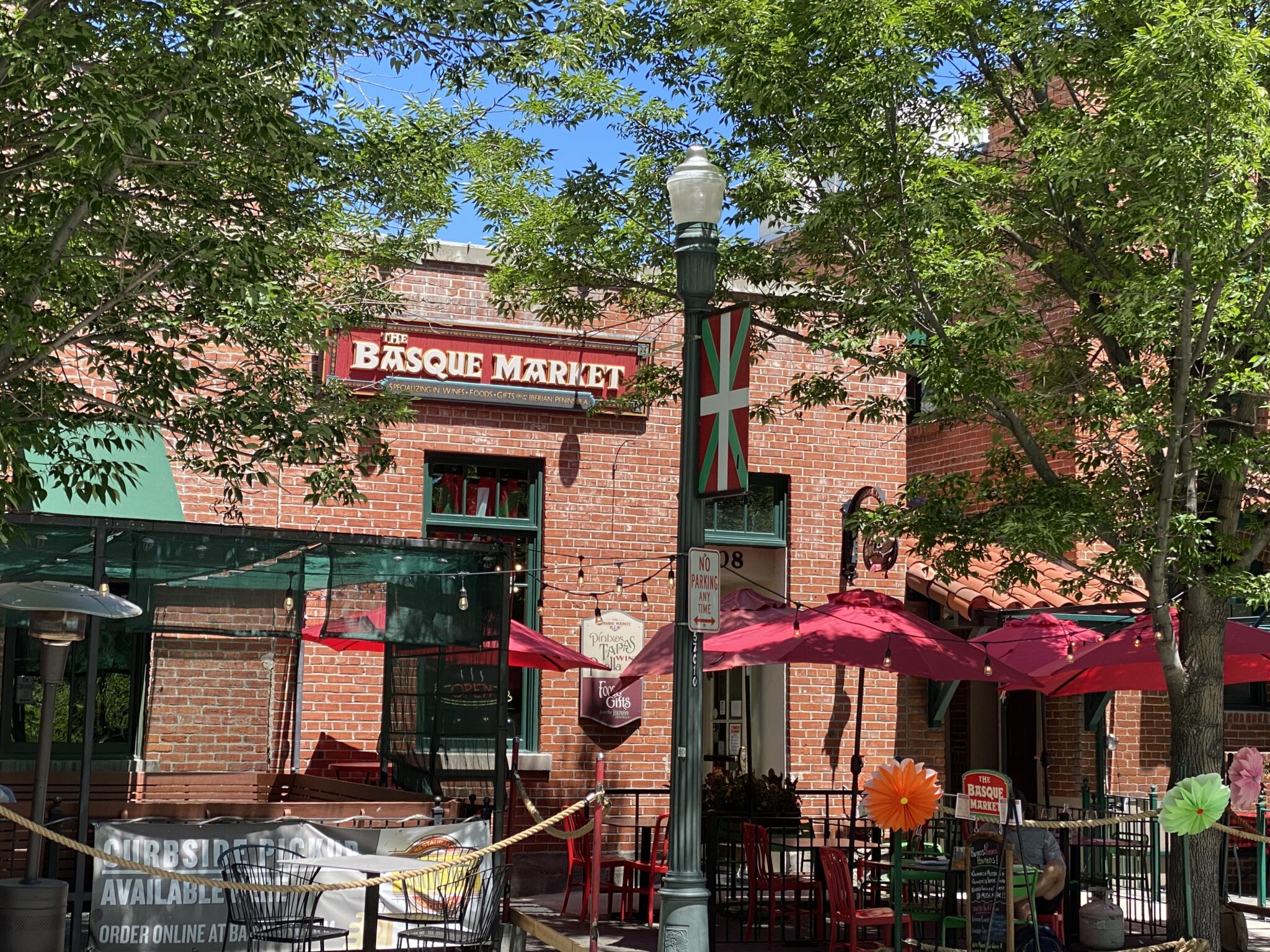
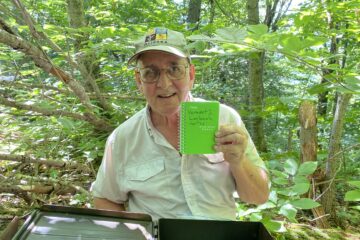
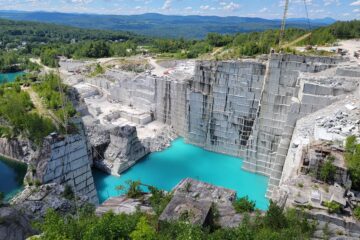
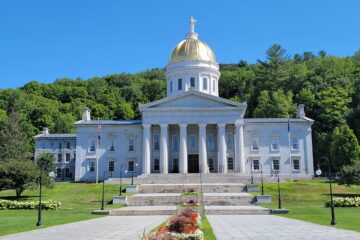
4 Comments
jas waterd · June 3, 2021 at 1:55 pm
Dont worry about those tight ladies’ shoes. The corset would have all your attention.
Joette Giorgis · June 3, 2021 at 7:38 pm
Very interesting! I had learned a little about the Basques in French class, but had no idea that there were Basques in Idaho. Thank you for sharing your travels with us.
Susan · August 17, 2021 at 9:24 am
Boy Dave you never told me you got to eat in an old wagon. Great pictures. Wish I had the right glasses to see the photos’ in 3D
Laura · October 19, 2021 at 1:37 pm
Loved this article. Who knew? As you can see, I’m far behind in the adventures. Trying to catch up.